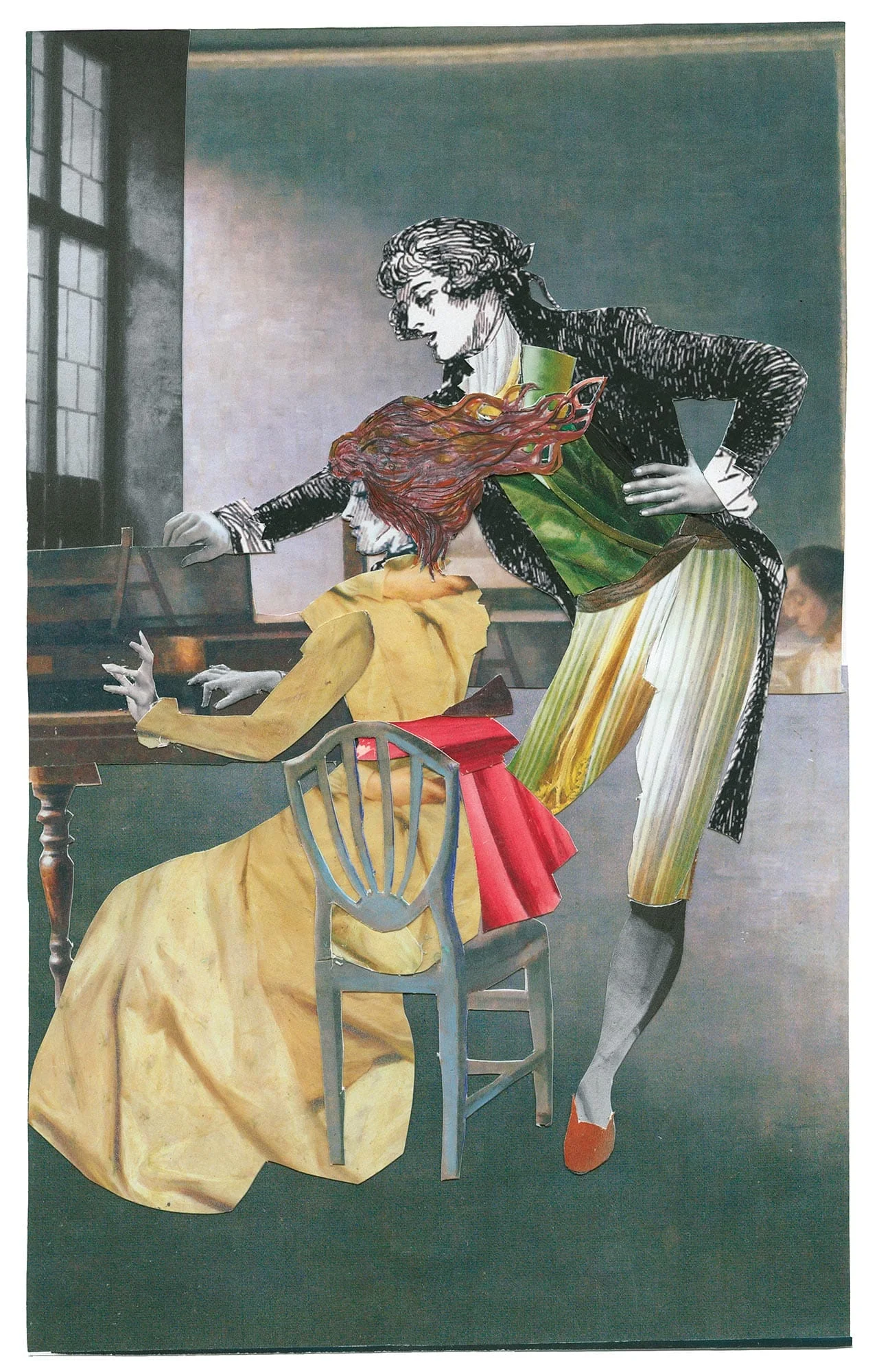Sense & Sensibility, chapter 11: Love Bomb
There are no “coming out” seasons in Jane Austen novels (funny considering that it’s a consistent theme in modern stories set in this time period). Parties, dances, socially-approved meet-ups between courting couples—all contingent on who wants to host what kind of get-together.* Lucky for Marianne and Willoughby that their rich neighbor loves throwing parties and being surrounded by the young ’uns. Such parties “afford [Willoughby] opportunity of witnessing the excellencies of Marianne, of marking his animated admiration of her, and of receiving … the most pointed assurance of her affection.”
All good in the neighborhood …
Mostly. Sure, the main couple gets to hang out a lot, but it’s kind of bad for their image. First of all, it’s pretty rude to go to a dance, insist on being “partners for half the time,” and while not dancing, contrive “to stand together and scarcely [speak] a word to anybody else.” This induces “laughter” from the onlookers, but this doesn’t mean a lot to them. Mama Dashwood is too tender-hearted to put a stop to her daughter’s behavior, implicitly stamping her approval. To MA, altering her behavior would be to mask her feelings—“concealment,” she contends, is “a disgraceful subjection of reason to common-place and mistaken notions.”
We don’t expect Marianne to invoke reason or logic because she is so caught up in her ideals and romanticism. But here it’s revealed that her sensibility draws on conclusions that she finds reasonable or grounded in logic. And I’d argue that there is some logic in equating polished manners with dishonesty. It’s the same logic Darcy employs: it allows one to avoid engaging in unnecessary small talk and wasting time on people they don’t like. You don’t have to like Marianne (plenty of readers approve of this quality when it shows up in Darcy, though), but it’s important to recognize that she’s not a bratty teen pitching a fit. And, I hasten to point out, Willoughby’s own behavior only reinforces the appeal of this philosophy.
Poor Elinor is left by her lonesome. While Marianne is wrapped up in her and Willoughby’s relationship, Elinor is saddled with Mrs. Jennings and Lady Middleton as companions. One of them only comes alive when her kids are in the room, while the other frequently repeats “her own history” and dwells on “what [Mr. Jennings] said … a few minutes before he died.” A totally normal and not at all traumatic thing to bring up to a young woman whose own father passed away less than a year ago.
All this makes her appreciate Col. Brandon more than she has before. Not only is he friendly and knowledgeable, the “respect” between them is mutual: “in conversing with Elinor, he [finds] the greatest consolation for the total indifference of her sister.” And in a weird way, he’s also the best person to defend Marianne’s eccentricities—or at least, to see the positive quality in them. Col. Brandon is nonjudgmental when Elinor points out the irony in Marianne’s disbelief in “second attachments”: “how she contrives it without reflecting on the character of her own father, who had himself two wives, I know not.”** Elinor hopes age and experience will help MA “settle her opinions” and teach her the importance of “propriety.”
Col. Brandon doesn’t outright disagree, but he does caution Elinor against putting all her eggs in this particular basket: “[W]hen the romantic refinements of a young mind are obliged to give way,” he laments, “how frequently are they succeeded by such opinions as are but too common, and too dangerous!” He’d rather someone like Marianne continue believing in her ideals than become disappointed with life. Then he brings up “a lady [he knew] who in temper and mind greatly resembled” Marianne …before shutting up. Elinor doesn’t press the issue, only concluding that “the misery of disappointed love had already been known by him.”
(Col. Brandon’s outburst is a little less extreme, perhaps, when one takes into account that his past heartbreak is connected with what he’s going through in the present day.)
I want to end with an observation from David M. Shapard concerning the presentation of sensibility: “[Col. Brandon’s] warning about the possible dangers of abandoning romantic principles … does not necessarily contradict the general message of the novel.” As I re-read this book, I’ve discovered that it’s best to regard “sense” and “sensibility” as neutral traits that can influence both positive and negative behaviors. After all, there are “examples [in the novel] of lack of feeling that are more harmful or repulsive … than any of Marianne’s faults.”
We’ll see an escalation in Marianne’s behavior and her relationship with Willoughby next chapter.
Credit for the above photo goes to Augusta Talbot.
*Part of the reason why it was hard to say if Fanny Price was out has to do with the lack of events in the first half of Mansfield Park.
**This has been bugging me since chapter 3, and I’m glad that Austen knew to bring this up in the text.
.jpg)


Comments
Post a Comment